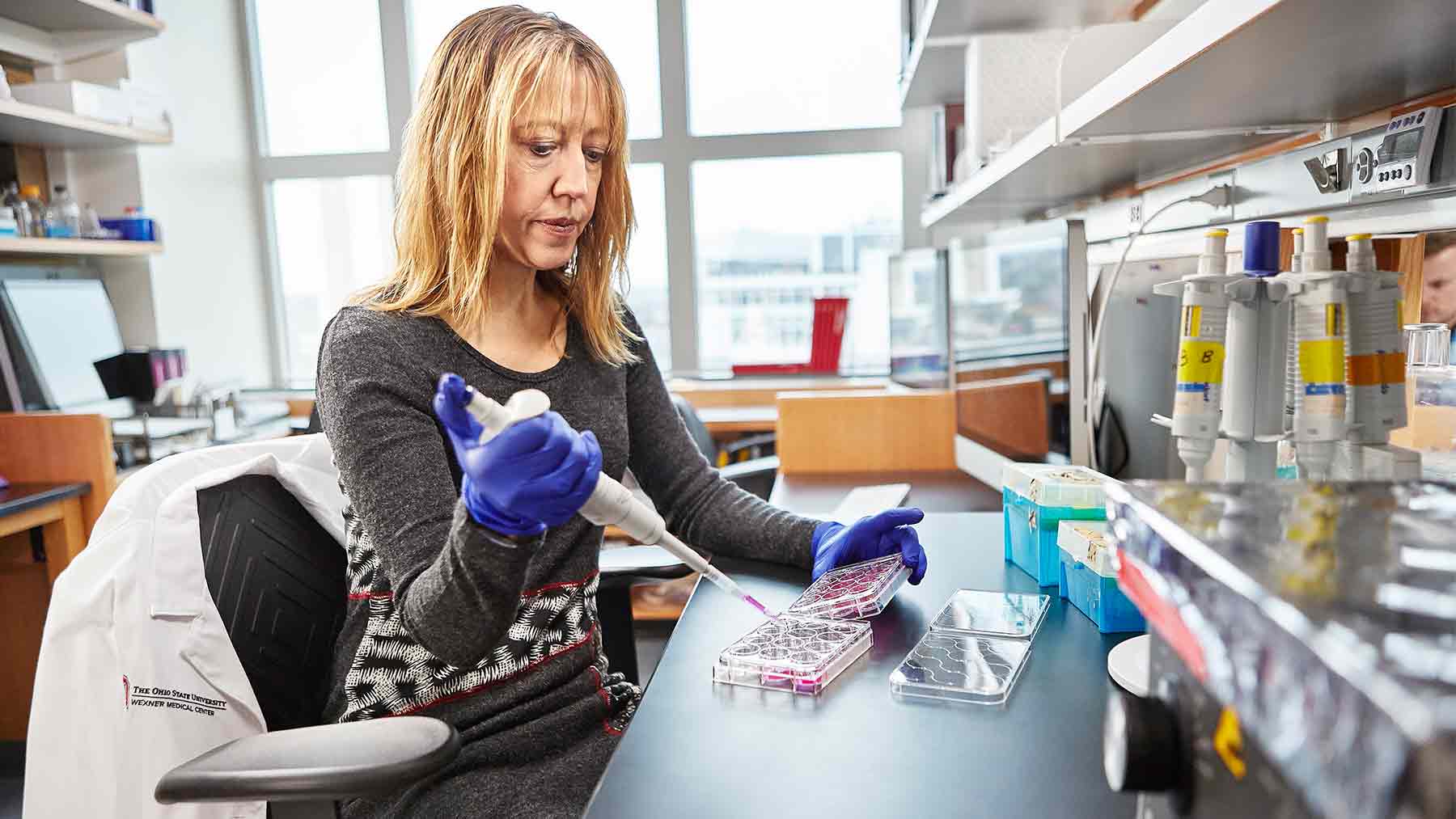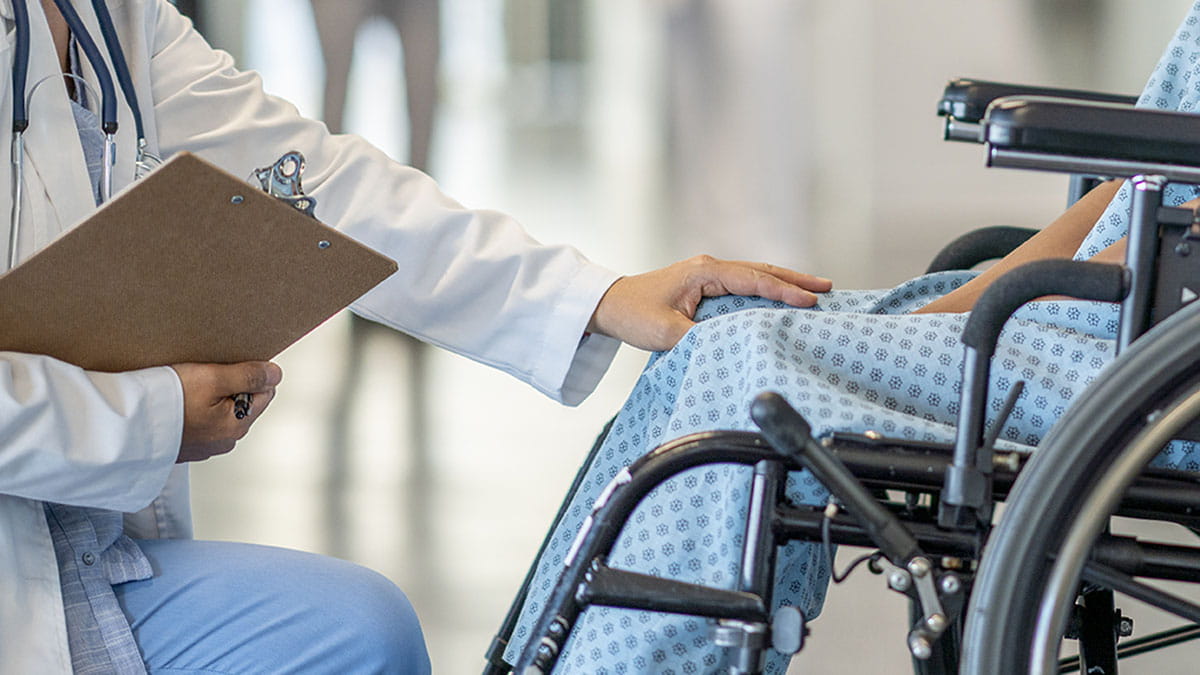What is the future of spinal cord injury care?

A devastating spinal cord injury can cause permanent paralysis. But, spinal cord injuries do much more than cause paralysis.
Depending on the level and extent of the injury, you may lose the ability to move your legs, arms or hands. But those with spinal cord injuries also have a much greater risk of developing deadly infections such as pneumonia.
That’s why our research teams at the Center for Brain and Spinal Cord Repair at The Ohio State University Wexner Medical Center are conducting pioneering research that is redefining the future of spinal cord injury care.
A recent $10 million gift from the Belford Family Charitable Fund will allow the Medical Center to establish The Belford Center for Spinal Cord Injury, which will focus on spinal cord injury research to prolong and improve the quality of life of patients.
Why is your spinal cord so important?
The spinal cord is the main “switch board” that controls the rest of the body. Everything in your body is connected to and controlled by your spinal cord.
Although you need your brain to tell your hand to grab an object, it’s neurons in the spinal cord that execute such a movement. Other subconscious activities like breathing or fighting infections also require the spinal cord.
We know that the immune system, nervous system and other vital organs are all interconnected and inter-related through their connections with the spinal cord. So, if your spinal cord is damaged, that can negatively affect other systems in your body.
What happens to your immune system after a spinal cord injury?
Research led by our team has shown that spinal cord injuries can also cause a “paralysis” of the immune system that renders these patients more susceptible to pneumonia and other infections.
Part of the reason this happens is that the immune system, the body’s defense mechanism against infection, is damaged by spinal cord injury.
Patients with injured spinal cords are 37 times more likely to develop an infection than someone without a spinal cord injury. They also have a greater chance of dying from an infection within 10 years of their injury.
Why does the immune system stop working properly? Our research has shown that simple, everyday occurrences such as having bowel movements or emptying the bladder cause exaggerated neural reflexes in the spinal cord, which over-activate and “kill” cells in the immune system.
How do gut microbes change after spinal cord injury?
The community of bacteria that live in our intestines, also called the “gut microbiome,” is important to normal intestinal function.
Knowing that spinal cord injuries often negatively affect the gut’s ability to do its job, our team of researchers showed that spinal cord injury causes profound changes in the gut microbiota. They also showed that feeding mice probiotics after a spinal cord injury confers neuroprotection and improves functional recovery.
The trillions of microbes that exist in the gastrointestinal tract have emerged as pivotal regulators of human development and physiology. Spinal cord injuries cause dramatic shifts in the types of bacteria normally found in the gut, resulting in dysbiosis, also known as microbial imbalance, which can cause or contribute to neurologic disease.
Our research will help shape future pre-clinical and clinical research programs focused on understanding the importance of the gut-immune-central nervous system connection in recovery from spinal cord injury.
With our comprehensive approach to spinal injury research, care and rehabilitation, we’re offering new hope to spinal cord injury patients. We’re translating what we learn into new therapies no one dreamed of only a few short years ago.
Phillip Popovich is chair of the department of neuroscience at the Ohio State College of Medicine and director of the Center for Brain and Spinal Cord Repair at Ohio State Wexner Medical Center’s Neurological Institute.




